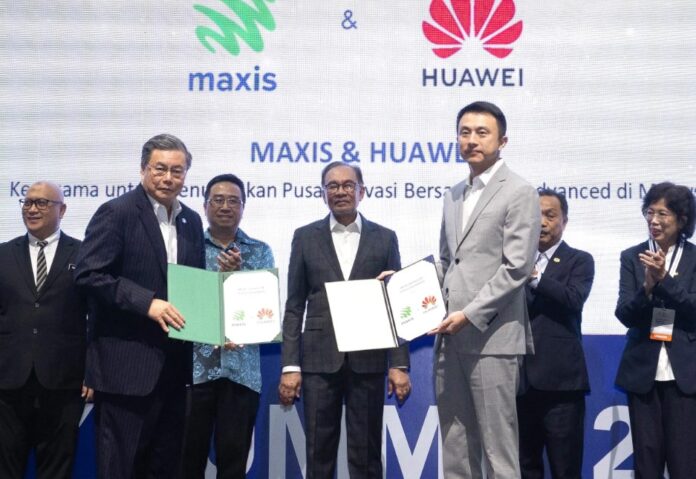Earlier this year, Maxis said it successfully showcased what it claimed to be the first 5G-A technology trial in Malaysia and Southeast Asia in partnership with Huawei
Malaysian telco Maxis and Chinese vendor Huawei Technologies have announced a new collaboration on a joint innovation center focused on the development of 5G-Advanced (5G-A) technology to explore and develop innovative solutions to improve customer experience, operating efficiencies and industry use cases.
Under the terms of the strategic collaboration, Maxis and Huawei Malaysia will explore gigabit capacity to support mobile network expansions and 5G/5G-A technologies such as mobile edge computing, network slicing, end-to-end network orchestration, RedCap and Passive-IoT. Additionally, Maxis and Huawei Malaysia will also explore the implementation of digitalization, artificial intelligence (AI) and machine learning (ML) to optimize network operating efficiencies.
“The continued collaboration with Huawei is one of the many ways we are supporting Malaysia’s digital ambitions. With this latest collaboration we want to take full advantage of 5G-Advanced by building up human capital alongside commercialized innovation for enterprises and industries,” said Goh Seow Eng, CEO of Maxis.
Through a number of academia-industry engagements, training programs and R&D projects, the collaboration also aims to ensure that Malaysian talent is equipped with the skills needed to thrive in the rapidly evolving telecommunications and technology sector, Maxis said.
Earlier this year, Maxis said it successfully showcased what it claimed to be the first 5G-Advanced technology trial in Malaysia and Southeast Asia, in partnership with Huawei.
At the time, Maxis highlighted that the 5G-Advanced trial included a live speed test to demo 5G-Advanced’s capabilities to achieve ultra-fast peak speeds of up to 8Gbps. 5G-Advanced, which Huawei calls “5.5G”, promises up to 10 times improvement in speed, connected devices and latency compared to current 5G networks, Maxis said.
The demonstration booths featured interactive applications of the technology, including low-latency live streaming of various Kuala Lumpur city center views, live 3D content and immersive augmented reality (AR) experiences.
Maxis also said that 5.5G’s advanced capabilities can support digitalization, automation, and the IoT across many sectors. These capabilities will facilitate the digital upgrade of core industries such as high-end manufacturing, automotive and smart transportation, as well as enable state-of-the-art visual communication through 3D and extended reality (XR). In addition, 5G-Advanced will support the development of affordable IoT solutions, the carrier added.
In March of this year, Maxis and Nokia had inked a partnership with the aim of expand their collaboration and focus on next-generation connectivity.
As part of the collaboration, Maxis will work with Nokia to explore the implementation of newer technologies to further fortify Maxis’ networks, strengthening security and reliability. This includes quantum-safe optical networking that protects against threats by both classical and quantum computers.
In addition, both companies will explore innovation around facilitating efficient and scalable connectivity across cloud environments to bolster network security.
Maxis recently engaged Nokia as a key partner to build part of its 5G Core ecosystem to meet future connectivity needs. This includes utilizing cloud-native solutions that will enable Maxis to fully leverage 5G capabilities.
Maxis is currently offering 5G in Malaysia using the network infrastructure owned by state-run 5G network Digital Nasional Berhad (DNB).

